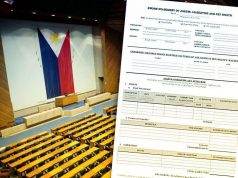THE Senate committee on finance on Monday committed to restore at least P16 billion worth of allocations to the budget of the Department of Health (DoH), especially to the agency’s Health Facilities Enhancement Program (HFEP), in the proposed 2019 national budget.
Senate Minority Leader Franklin M. Drilon raised the issue during the continuation of the deliberations in the Senate on the General Appropriations Bill.
“I’m forced to bring it up because of the very substantial reduction. It has to have the decision of the committee on finance so we can reinstate it if we can the budget because of the very adverse effect on our health services,” he said.
“I’m more than willing to do it. I simply have to find a source of funds… It’s important we restore it in full,” Senator Loren B. Legarda, chair of the committee, said in response.
Under the GAB, the DoH budget allocation is P77 billion, but the Senate’ version of the budget bill propose P79 billion. The latter amount is P28 billion less than the P107 billion current DoH budget in 2018.
Mr. Drilon said Health Secretary Francisco T. Duque has told him that the department needs P16.8 billion more to cover the HFEP. Mr. Duque has also said there were about 900 health facilities with existing human resources but lacking in the equipment. Several health facilities being constructed were already more than 70% complete, which need funding.
“I don’t think we can face people with revelations that there are some districts which get P2.4 billion in farm-to-market roads. And here there are 900 health facilities that are completely manned but needs equipment,” Mr. Drilon said.
Ms. Legarda said the Senate will prioritize the funding of the equipment for the health facilities. She also said special provisions may be added in the GAB that would help the DoH obligate their funding faster, citing that the agency has only 16% obligated its budget as of September 2018.
She also noted that the DoH may also utilize unused 2018 appropriations, which Congress authorized through a joint resolution, to cover funding gaps in the agency. — Camille A. Aguinaldo



